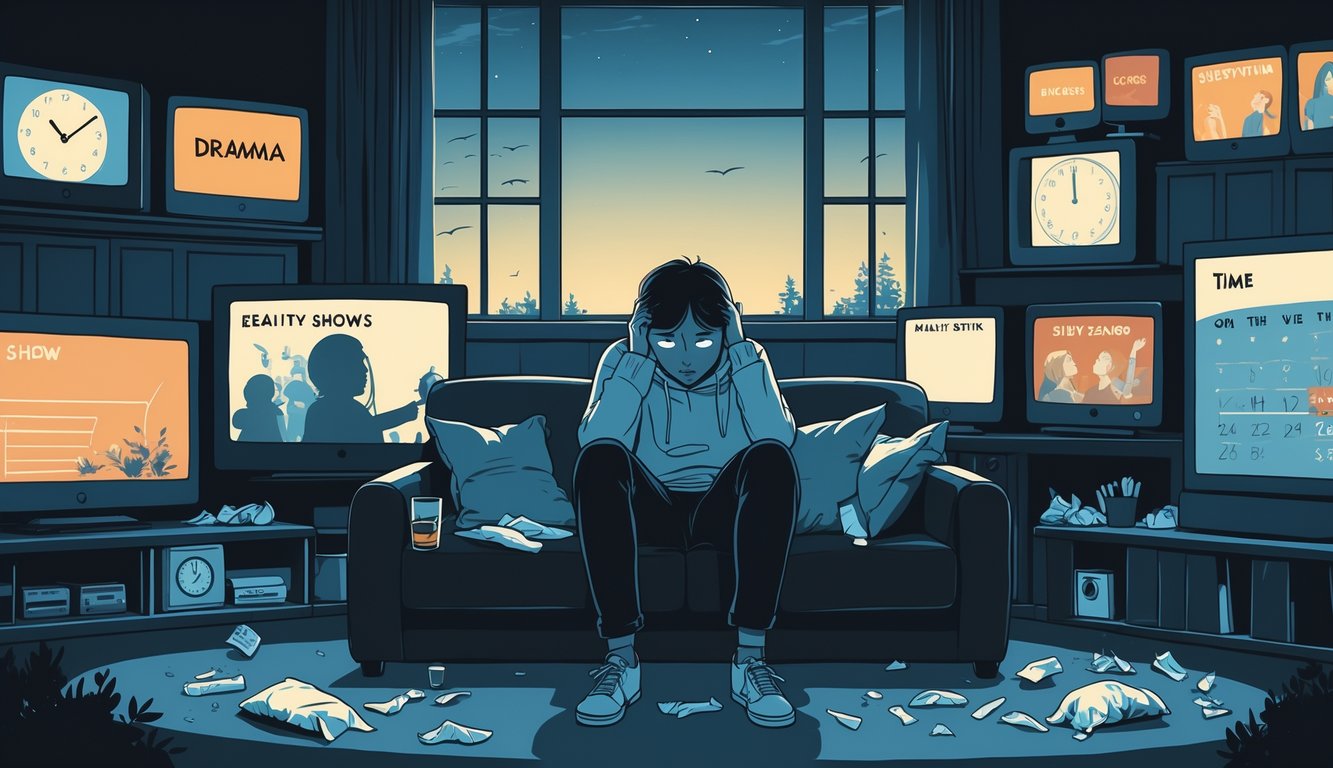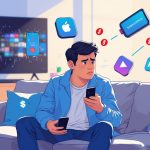
Psychological Effects of Binge-Watching TV Genres
There are days I start a mystery series after work, swear I’ll stop after one episode, and six hours later, I’m dehydrated, my head hurts, and my phone’s blowing up with “where are you?” texts. Not every show is equally relentless, but some genres just grab you—suspense, crime, even comedies with cliffhangers.
Dopamine and Instant Gratification
I know, dopamine, blah blah, but seriously—psychological thrillers hit that reward button so hard, stopping feels like actual withdrawal. Netflix originals are the worst. Dr. Anna Lembke calls it the “potato chip moment”—nobody stops at one.
Some studies flag three episodes straight as a red flag for “problematic use” (read this). The dopamine rush overrides any sense of relaxation, just constant anticipation. It’s not, like, hard drugs, but the wiring’s similar—one more episode, and suddenly boundaries are imaginary.
Impact on Self-Control and Routine
My routines? Wrecked. If I start a comedy or reality show binge on Sunday night, sleep doesn’t stand a chance. Missed meetings, skipped workouts, trainer texts “You in?”—nope. Research on binge-watching motives says certain genres are way more likely to nuke your routine.
And I always think I have self-control. I meal prep, floss, sunscreen (SPF 30, usually). But auto-play and suspenseful storylines just bulldoze my willpower. Even universities are tracking how students’ sleep and grades tank after bingeing. Self-discipline isn’t permanent; a good series unravels it in a night. Why can I skip dessert but not the next episode? Makes no sense.
Mental Health Implications of Binge-Watching
Now, every time I open my streaming queue, I remember all those warnings about screen time weren’t just for kids—PubMed has the stats to prove it. Real stress, real anxiety, not just “oh, I stayed up too late.” Comparing pre-pandemic to now? The mental health spikes are, uh, kind of impossible to ignore, no matter how much I want to believe “just one more episode” is harmless.
Short-Term Emotional Responses
One bad cliffhanger and suddenly I’m refreshing Reddit for plot leaks I’ll pretend I don’t want. Why do I even do this? It’s just TV, right? But apparently, not really—one meta-analysis (here: PMC) actually says stress levels climb pretty fast (correlation coefficient 0.32, which, okay, is weirderly high). Anxiety’s right behind at 0.25. Doesn’t sound wild, but then I’m staring at the ceiling at 2 a.m. wondering if I left the oven on or just forgot what sleep feels like. And yeah, my mood? Rollercoaster. Therapists keep warning about doomscrolling making things worse, but honestly, a night of true crime does more to my heart rate than any treadmill. Sleep? Forget it—bingeing shreds it. There’s even a term for that now: revenge bedtime procrastination. Not that I ever admit I’m doing it. Marvel should do a spinoff about insomniacs and their midnight sitcom reruns. I’d watch it. At 3 a.m.
Potential for Long-Term Psychological Impact
Genres engineered for bingeing—suspense, dystopian sci-fi, whatever—are like quicksand for my brain. But here’s the kicker: it’s not just a mood blip. I read this systematic review (yeah, I check sources, PMC), and it links long-haul bingeing to depression that’s way stickier than just a bad day. Especially during lockdowns, when “socializing” meant waving at the neighbor’s cat. Nobody ever warns you that comparing yourself to fictional people who never mess up can make you feel like garbage, but it’s in the research (Psychologs). The weirdest bit? More bingeing = more chronic sleep mess. The only thing that makes sense is the COVID-19 spike: isolation, loneliness, impulsivity, all up. Still haven’t seen a doctor ask, “How many cliffhangers did you survive this week?” If they did, I’d probably fudge the number.



